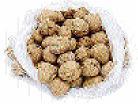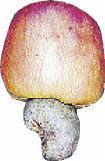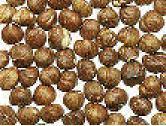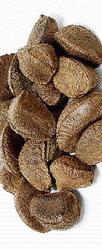Heather Little-White, Contributor
Nuts are usually enjoyed by all and are healthy items to include in the diet. Studies have shown that the risk of coronary heart disease is 37 per cent lower among people who ate nuts more than four times a week compared to persons who seldom or never eat nuts.
The nutritional reasoning is that nuts are rich in monounsaturated fats which help lower low-density lipoprotein (LDL), or 'bad' cholesterol, in the blood.
The healthy fats in nuts make them beneficial to the heart and circulation. However, nuts are highly allergenic, creating hives and other physical reactions. Salted varieties increase the sodium content per ounce. The fibre content of nuts is remarkable and will assist with bowel movement.
The variety of nuts is wide, offering nutritional value to culinary treats.
Almonds

Almonds are an excellent source of fibre with little sodium and no cholesterol. Almonds are a good source of magnesium which helps in the regulation of blood pressure. They also contain iron to help prevent anaemia. There is better absorption of the iron if almonds are eaten with foods rich in vitamin C. It is easy to sprinkle chopped toasted almonds over a salad. Fair amounts of folate, potassium, calcium and zinc are found in almonds.
However, because of the fat content of almonds, they are not for absent-minded snacking; and because almonds contain oxalic acid, they should be cautiously eaten by those with calcium-oxalate stones. Nuts are allergens causing hives, headaches and other reactions when eaten. Salted nuts have higher sodium levels per ounce compared to unsalted nuts.
Brazil nuts
Brazil nuts contain a good amount of fibre and contain ellagic acid, which is associated with eliminating certain cancer-causing agents from the body. Its rich source of iron is enhanced by eating with foods rich in vitamin C. Chopped Brazil nuts, sprinkled over a fruit cup or lightly sautéed red peppers, are a delightful culinary treat. Shelled Brazil nuts should be kept refrigerated to prevent them from becoming rancid because of their high oil content. Brazil nuts usually need a nutcracker for easy shelling after boiling for three minutes.
Cashew

Cashew nuts are all-time favourites and as long as they are eaten unsalted, they are low in sodium. Cashews have immunity-enhancing minerals such as iron, zinc and folate. They are loaded with magnesium, which is important for functioning of nerves and muscles.
Coconuts

Coconuts, though high in saturated fats, are a good plant source of fat as there is no cholesterol. The health benefits of coconut oil include hair care, skin care, stress relief, heart disease, reduced cholesterol levels, weight loss, kidney problems, digestion, metabolism, high blood pressure, immunity, dental care, diabetes, bone strength and cancer. These benefits of coconut oil can be attributed to the presence of lauric acid, capric acid and caprylic acid, and its properties such as antimicrobial, antioxidant, antifungal, antibacterial, soothing, etc.
For an occasional treat, it is recommended that you chew on a piece of fresh coconut to exercise the jaw bone.
Macadamia nuts

Macadamia nuts, also known as Australian nuts, are free of cholesterol, low in sodium and have levels of magnesium to help control blood pressure. Appreciable amounts of iron are found in macadamia nuts and are better absorbed when eaten with chunks of pineapple, papaya, mango and cantaloupe. Macadamia nuts, with its origin in Queensland, Australia, are better eaten unsalted to keep sodium levels down.
Mixed nuts are high in fibre given the variety of nuts used. Rich in health-giving nutrients, mixed nuts should be eaten with orange juice or other beverages high in vitamin C. The mixture of nuts usually includes cashews, almonds, peanuts and pecans.
Peanuts
Peanuts are a good source of fibre, with a valuable amount of B vitamins, especially niacin. B vitamins are valuable to protect the skin and nerves. Peanuts are loaded with magnesium. Hypertensives should take care in eating salted peanuts to keep blood pressure normal. Peanuts contain phytates and other substances that inhibit the absorption of iron from plant foods unless vitamin C is consumed with the meal.
Pecans

Pecans provide fibre and are loaded with zinc, folate and iron. Pecans are popular with men as zinc helps virility in males. Pecans are to be eaten with foods rich in vitamin C to enhance absorption of the non-heme iron. Pecans are a tasty addition to berry desserts, with the berries high in vitamin C content Like other nuts, pecans are high in fat and should be properly stored to prevent rancidity. Shelled pecans are best refrigerated in an airtight container which will keep them fresh for at least three months. Pecans may be frozen for up to six months.
Walnuts

Walnuts are high in fibre with little sodium and no cholesterol. English walnuts contain some omega-3s which have cholesterol-lowering effects. Like other nuts, walnuts are better eaten when chopped and eaten with steamed Brussels spouts, cooked turnip, greens and baked potatoes. Walnuts originated in Persia, hence the alternative name Persia nuts.
Nuts, low in net carbs and low on the glycaemic index, are calorie-dense and should be eaten in moderation. Nuts have a high satiety factor, which means they satisfy appetite and help prevent overeating. In addition, they perk up any culinary dish for all occasions.
Heather Little-White, PhD, is a nutrition and lifestyle consultant in the Corporate Area. Send comments to editor@gleanerjm.com or fax 922-6223.

